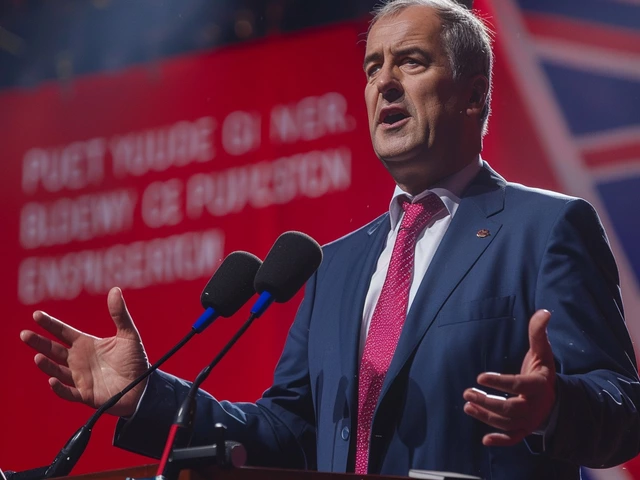A witness summons that could reshape Arsenal’s matchdays
Arsenal’s new No. 9 has hit the ground running in North London. But Viktor Gyokeres could soon be juggling goals and court dates. The Sweden international has agreed to testify as a witness in a defamation trial in his home country linked to his agent, Hasan Cetinkaya. The case is expected to continue into next year, and while the dates aren’t set in stone, any summons could land squarely on a matchweek.
Cetinkaya has filed a lawsuit for gross defamation against Swedish outlets Expressen and Fotboll Sthlm after reporting that tied him and his agency to criminal gangs—allegations he firmly denies. Gyokeres is not accused of any crime. His role is strictly as a witness, which still carries obligations under Swedish law if the court requires him to appear.
The timing is the story. Arsenal have built their attack around the 26-year-old since his summer move from Sporting Clube de Portugal, part of a transfer window that saw the club commit around £260 million. Three league games in, two goals, and a visible shift in how Mikel Arteta wants his side to press, combine, and finish—Gyokeres has become the reference point up front.
That makes any disruption feel bigger than the headlines suggest. If a hearing falls midweek, travel to Sweden could eat into training time before a weekend fixture. If it lands on a Friday or Monday, the knock-on could still be felt in recovery and preparation. If it lands on a matchday, Arsenal would have a selection problem on their hands.
How likely is a clash? Swedish courts can and do allow remote testimony in some cases, especially for witnesses living abroad. But that isn’t guaranteed. Judges decide on a case-by-case basis, weighing relevance, scheduling, and practicalities. If the court insists on in-person testimony, he would have to show up.
In Sweden, “gross defamation” (grovt förtal) covers accusations considered particularly damaging to a person’s reputation. It’s treated more seriously than standard defamation and can carry tougher penalties if the court rules in the plaintiff’s favor. For a high-profile agent, the stakes are reputational as much as legal. For Gyokeres, the stakes are logistical: when and how he’s needed.
Arsenal’s calendar doesn’t leave much daylight for surprises. After the first international break, they face Nottingham Forest before opening their Champions League campaign away to Athletic Bilbao. From mid-September, it’s two games most weeks until winter. The club’s staff plan these blocks down to the hour—flights, nutrition, recovery cycles—so even a 48-hour sidestep to Stockholm can bend the schedule.
Inside the squad, the hierarchy up top is clear. Gyokeres has started ahead of other options and given Arsenal the blend they lacked during last season’s injury pile-up: decisive movement in the box, reliable hold-up play, and quick presses that spring counters. When he plays, wide forwards get better shots. Midfielders get cleaner entries into the final third.
If he’s out for a game or two, the alternatives are workable but different. Arteta could:
- Use a mobile forward who drops off the line to overload midfield.
- Go with a physical presence to pin centre-backs and attack crosses.
- Lean on a false nine to pull defenders out and free the wingers.
Each option changes the build-up. The wingers’ runs shift. The full-backs’ starting positions move. The press triggers tweak. That’s not a crisis; it’s coaching. But it matters in tight title races, where a dropped point in October can haunt April.
Gyokeres’ form supports the urgency. He has scored twice in his first three Premier League outings, including starts against Manchester United, Leeds, and Liverpool. He looks like a player who brought his Sporting form with him—direct, strong, and ruthlessly tidy in the box. He also fits the club’s bigger plan to remove the streakiness that dogged them last spring.
What can Arsenal do now? Not much, publicly. Clubs usually liaise quietly with legal teams to understand likely windows, request remote testimony if appropriate, and flag potential fixture conflicts. That’s all behind the scenes. The player, for his part, keeps training and playing until a formal request lands.
There’s also the psychological side. Courtroom obligations—though routine for witnesses—can weigh on an athlete’s week. Schedules shift. Media questions spike. Players tend to shut that out by sticking to their routine: gym, video sessions, finishing drills, recovery. Stability is the antidote.
For supporters, the key points are simple. Gyokeres is not under suspicion. This is a legal dispute between his agent and two media outlets. The uncertainty is about scheduling, not sanctions. And until a court date is fixed, Arsenal will plan as if their No. 9 is available.
Zoom out and the picture is familiar: modern football runs on slender margins. A legal diary entry in Stockholm can reshape a tactical plan in London. Arsenal have built a squad to absorb bumps like this, but there’s no avoiding how central Gyokeres has become in a very short time. If the court calls during a crunch stretch, Arteta will have decisions to make—and quickly.

Dates, travel, and the fixture squeeze
International breaks in autumn offer natural windows for any required travel, but they’re also committed to national-team duty. Winter brings league congestion, European away days, and domestic cup ties. If a court session lands in early week, a Tuesday return flight still eats into recovery for a Saturday kickoff. If it’s late week, tactical prep gets trimmed.
Could the proceedings be delayed to accommodate football? It’s possible but not something anyone should bank on. Courts set priorities based on legal need, not sporting calendars. Remote testimony is the practical compromise, and clubs have used it before to keep players on the training pitch while fulfilling legal obligations.
Until then, the football rolls on. Arsenal will focus on the next match, managing minutes and leaning into the chemistry that’s already forming. If the phone rings from Stockholm, they’ll pivot. If not, Gyokeres keeps doing what he was brought in to do: finish chances, lead the press, and give Arteta a reliable focal point in a season where reliability is everything.




